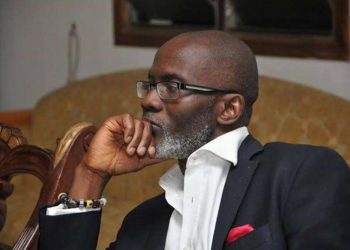The Africa Centre for Energy Policy (ACEP) has urged Ghana’s government to “immediately” apply the estimated accumulated balance of GHS948 million in the Price Stabilisation and Recovery Levy (PSRL) account to as it were, cushion petroleum consumers instead of waiting to rely on parliament, which is currently on recess, to grant a two-month suspension of the PSRL.
According to ACEP the government could use the available accumulated cash to assuage the suffering of the consumers immediately.
In a statement signed by its Executive Director, Benjamin Boakye, between 2016 and 2019, consumers of petroleum products paid GHp12 per litre on petrol, GHp10 per litre on diesel and GHp10 per kilogramme as PSRL.
The statement continued that the levy was adjusted upwards in 2019 to GHp16 per litre on petrol, GHp14 per litre on diesel and GHp14 per kilogram on LPG with the adjustments taking effect in the subsequent year, 2020.
“Based on consumption data of petroleum products between 2016 and a half year of 2021, the PSRL is estimated to have cumulatively raised about GHS2.53 billion, out of which an average of 50 per cent is estimated as subsidies for premix fuel and RFO. Adjusting for 25 per cent non-collection rate or theft by some Oil Marketing Companies (OMCs), the PSRL is estimated to have cumulatively risen about GHS1.89 billion. Out of this amount, about GHS948 million is expected to have been cumulatively spent on subsidies, leaving about GHS948 million as the balance of the account, given that levy has never been used to stabilise prices since it was imposed in 2015”, the statement signed by Benjamin Boakye stated.
On the issue of policy credibility, Mr Boakye noted that “the utilisation of the accumulated balance is what is required to cushion consumers in this high oil price period”. He added that simply zero-rating the PSRL for two months creates the assumption that government does not intend to activate the price stabilisation purpose of the PSRL, thus raising the fundamental accountability question of what government intends to use the estimated balance of GHS948 million in the PSRL account for.
“It is important to highlight that consumers of petroleum products in a deregulated market are price takers. They do not control the three key variables that significantly influence petroleum prices in Ghana; global crude oil prices, the foreign exchange rate and the taxes and levies imposed on petroleum products. Therefore, if there is a policy for consumers to pay a levy to assuage their pain in a high oil price regime, the least the caretaker of the levy could do is to preserve the credibility of the levy. Unfortunately, the opposite appears to be the case”, the ACEP boss stated.
He further explained that in the current escalating price regime, the application of the PSRL for its legally established purpose is an easier and more responsive approach to cushion consumers than what is proposed by NPA. According to him, the application of the levy as established by law does not require Parliamentary approval. Therefore, it is intriguing that NPA prefers that citizens wait for Parliament (currently in recess) to grant a two-month suspension of the PSRL when there is accumulated cash to assuage the suffering of the consumers immediately.
Read the full details below:
ZERO-RATING THE PRICE STABILISATION AND RECOVERY LEVY FOR TWO MONTHS ONLY QUESTIONS THE EFFICIENCY OF THE LEVY
ACEP has taken note of a press release from the National Petroleum Authority (NPA) dated Monday, 11th October 2021, announcing the decision to zero the Price Stabilisation and Recovery Levy on petrol, diesel, and LPG for two months.
The NPA’s press release comes on the back of recent public agitations over upward fuel price adjustments at the pump to reflect the surge in crude oil prices on the global market and the depreciation of the cedi. For the ordinary consumer of petroleum products in the country, any reduction in prices should be welcomed. However, the decision to zero the Price Stabilisation and Recovery Levy (PSRL) for the next two months calls into question the efficiency of the levy and the delivery of its purpose.
The Price Stabilisation and Recovery Levy (PSRL) was established in 2015 under the Energy Sector Levies Act, 2015 (Act 899). Section 5 of Act 899 prescribes the purpose of the levy:
- (1) The Minister shall cause to be opened and maintained an account to be known as the Price Stabilisation and Recovery Account for the purpose of receiving money realised from the Price Stabilisation and Recovery Levy.
(2) Money in the Price Stabilisation and Recovery Account shall be used
(a) as a buffer for under-recoveries in the petroleum sector;
(b) to stabilise petroleum prices for consumers; and
(c) to subsidise premix and residual fuel oil.
Between 2016 and 2019, consumers of petroleum products paid GHp12 per litre on petrol, GHp10 per litre on diesel and GHp10 per kilogramme as PSRL. The levy was adjusted upwards in 2019 to GHp16 per litre on petrol, GHp14 per litre on diesel and GHp14 per kilogram on LPG. The adjustments took effect in 2020.
Based on consumption data of petroleum products between 2016 and a half year of 2021, the PSRL is estimated to have cumulatively raised about GHS2.53 billion, out of which an average of 50 per cent is estimated as subsidies for premix fuel and RFO. Adjusting for 25 per cent non-collection rate or theft by some Oil Marketing Companies (OMCs), the PSRL is estimated to have cumulatively raised about GHS1.89 billion. Out of this amount, about GHS948 million is expected to have been cumulatively spent on subsidies, leaving about GHS948 million as the balance of the account, given that levy has never been used to stabilise prices since it was imposed in 2015.
For policy credibility, the utilisation of the accumulated balance is what is required to cushion consumers in this high oil price period. Simply zero-rating the PSRL for two months creates the assumption that government does not intend to activate the price stabilisation purpose of the PSRL, thus raising the fundamental accountability question of what government intends to use the estimated balance of GHS948 million in the PSRL account for.
It is important to highlight that consumers of petroleum products in a deregulated market are price takers. They do not control the three key variables that significantly influence petroleum prices in Ghana; global crude oil prices, the foreign exchange rate and the taxes and levies imposed on petroleum products. Therefore, if there is a policy for consumers to pay a levy to assuage their pain in a high oil price regime, the least the caretaker of the levy could do is to preserve the credibility of the levy. Unfortunately, the opposite appears to be the case.
In the current escalating price regime, the application of the PSRL for its legally established purpose is an easier and more responsive approach to cushion consumers than what is proposed by NPA. Moreover, the application of the levy as established by law does not require Parliamentary approval. Therefore, it is intriguing that NPA prefers that citizens wait for Parliament (currently in recess) to grant a two-month suspension of the PSRL when there is accumulated cash to assuage the suffering of the consumers immediately.
The prices of a litre of petroleum products have increased by about 33 per cent this year. These increments introduce a significant cost burden for the productive sector and the average Ghanaian. Addressing this will require pragmatic interventions from the government which goes beyond the PSRL. This situation calls for a holistic review of the downstream price mechanics through the dual regulatory spectrums; taxes and levies from the government. margins and market failure on the part of the NPA.
Petroleum products have become the easiest avenue to tax within the last decade, with the periodic introduction of new taxes and upward adjustment of existing ones. The practice ignores the context of a country without an efficient social intervention for transportation. As a result, petroleum taxes impose a regressive burden on the average Ghanaian. On the part of the NPA, there are impositions of margins that have outlived their usefulness; the BOST margin, Fuel Marking margin and Unified Petroleum Price Fund (UPPF) margin. The worst part, the collection of the margins and levies has not been optimal, leading to losses from theft by some OMCs in excess of GHS1billion annually.
From the foregoing, we recommend that; 1. Government should immediately apply the estimated accumulated balance of GHS948 million in the PSRL Account to cushion petroleum consumers. 2. Government should ensure that GRA improves the efficiency of revenue collection from the levies to allow the reduction of levies to further cushion consumers. 3. Government should take steps to review the margins, taxes, and levies regime for petroleum products to eliminate those that have outlived their usefulness.
End.
Signed.
Benjamin Boakye Executive Director










Discussion about this post